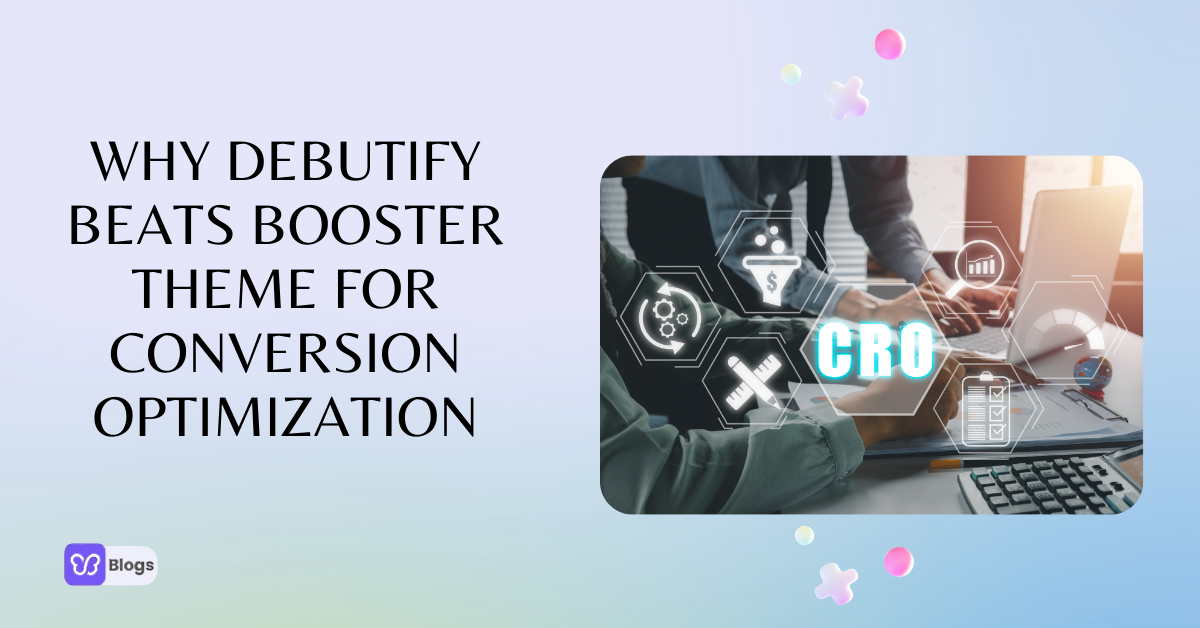For online sellers, it is hard to ignore the potential of affiliate marketing in 2023. There are many benefits of implementing an affiliate marketing strategy for your business. By choosing the right influencers and creating ads to aid your affiliate marketing programs, you'll witness a noticeable rise in your ROI and conversions.
Today, many ecommerce sites and Shopify stores maximize their earning potential by implementing the best affiliate marketing strategies.
If you haven't joined the pack yet, it's a perfect time to join 81% of other brands that are already enjoying higher profit margins using the best affiliate marketing programs.
We have created this post to help you understand the basics of advanced affiliate marketing strategy. After reading this post, you'd be able to formulate a foolproof affiliate marketing strategy to boost ecommerce sales and conversions.
Before we get too far, let's have a quick refresher on how affiliate marketing works for an ecommerce business.
What If Advanced Affiliate Marketing For Ecommerce?
Affiliate marketing, also known as performance-based marketing, is a process of paying a certain amount of commission to your customers when they bring in more customers to your business.
Businesses partner with different affiliates who then market their products and services on their behalf.
It is beneficial for all the parties - you get new customers, your affiliate (or referring customers) earns a commission, and a new buyer gets a chance to try a new service.
While many ecommerce businesses are just leveraging the power of affiliate marketing, this concept isn't new and has been around even before the internet was first introduced.
Commission terms vary from brand to brand. Some pay their affiliates for sale, while others pay for a click or a lead. Also, you can partner with one, two, or as many affiliates as you want.
Many people consider affiliate marketing as an easy way of making money. Sure, you can generate passive income for yourself by throwing a few links here and there on your website. But, if you're really looking to maximize your earning potential, you should invest your time and effort to build a robust advanced affiliate marketing strategy.
If you're still not convinced why you need a sophisticated affiliate marketing strategy for your ecommerce business, the below statistics will help you make up your mind.
Affiliate Marketing Stats You Need To Know
More than 81% of brands use affiliate marketing strategies worldwide to capture customers' attention, improve user engagement, and boost ecommerce sales.
Over 79% of marketers benefit from affiliate marketing techniques to drive conversions. With a 39% share, the United States is currently the leader in the affiliate marketing industry. More than 94% of publishers use affiliate marketing networks.
All in all, affiliate marketing accounts for more than 16% of global ecommerce sales.
Affiliate Marketing VS Referral Marketing
Many people often confuse affiliate marketing with referral marketing. That's mainly because we use 'refer' and 'referring' plenty of times when we talk about affiliate customers or marketers.
While the goal of both affiliate marketing and referral marketing is somewhat the same - to use your existing customers to bring more people on board, many things make these two approaches differ.
Referral marketing revolves around referring a business to people within your social circle (friends and family). Affiliate marketing, on the other hand, focuses on promoting a brand within a professional network.
The nature of referral marketing is more intentional and focused than affiliate marketing which is rather more generic and passive.
Referral marketers are usually compensated with discount codes, coupons, or deals, while affiliate marketers get a commission on each sale/click/lead.
Is Affiliate Marketing Worth It?
In all honesty, if you're expecting massive returns initially, let us tell you that's not going to happen. Why? Because affiliate marketing is all about building lots of trust and credibility, and that's not possible without investing a reasonable amount of time.
But as you grow with time and successfully build a loyal customer base for your business, you can make affiliate marketing a huge part of your total earnings.
The good thing about affiliate marketing is that it is very flexible. If you fail to make a profit from any specific product, you can move to an entirely different niche. Also, it is low-risk. You can hone in your expertise when you get an idea of products bringing you the most profit.
Benefits Of Affiliate Marketing For Your Online Business
As mentioned above, affiliate marketing is low-risk and allows businesses to earn new customers without putting their reputation at stake. Here are a few other benefits of affiliate marketing for your ecommerce business (besides, of course, having new customers onboard).
It’s Performance-Based
The biggest perk of using an affiliate marketing strategy for your business is that it is performance-based. That means you only have to pay for what you get. Since it's commission-based, your affiliates will have to constantly put in efforts if they want to keep earning from your program.
It Builds Social Proof
No matter how premium your product range is, people are more likely to invest their hard-earned money into it if and only if they get some positive feedback for that.&
According to Businessinsider, more than 95% of customers read reviews before they purchase anything online. The same post also highlighted that 60% of buyers are directly or indirectly influenced by third-party recommendations made online.
Measurable Performance
Another advantage of using affiliate marketing techniques is that they enable you to track your performance and measure results. Yes, you read that right. You can easily track key metrics, including CTRs and website views driving by your partners.
Without knowing who's doing what, it would be difficult for you to spot your top-performing affiliates.
Better Exposure
Collaborating with affiliates improves your brand exposure. Also, it allows you to target people who're genuinely interested in your offers. Greater exposure leads to more brand awareness, making it possible for you to expand your reach and have more leads and conversions.
Boosts Traffic
Affiliate marketing can do wonders for your brand when you combine it with your other marketing efforts. When you connect with many other websites, it improves your search engine visibility, and more and more people can find you online. So if you're looking to improve your SEO rankings and traffic, you can consider incorporating affiliate marketing into your business framework.
Increases Returns
Did you know you can enjoy up to 21% higher AOV when you have a proper affiliate marketing strategy in place?
Also, customers who approach your website through affiliate referrals contribute up to 58% more revenue than customers from organic sources.
Cost-Effective
As discussed earlier, affiliate marketing is a performance-based marketing structure that requires you to pay a commission when you get a click, link, or sale.
This makes it significantly more affordable and cost-effective than other available alternatives. Affiliate marketing allows you to enter new markets without having to invest extravagantly in other marketing efforts.
Expands Markets
Affiliates are present in nearly every domain. So no matter what industry you belong to, you can enter different niches without the hassle. As affiliates already have an established following, you can use their customer base to increase your revenues and strengthen your brand.
Top 6 Advanced Affiliate Marketing Techniques To Drive More Sales
If you have already created an affiliate website and are now looking for ways to take it to the next level, here are our top 6 advanced affiliate marketing techniques to try.
1. Choose The Right Affiliates
'Power of influence' forms the foundation of affiliate marketing. This is the factor that persuades customers to buy from you. Choosing the right influencers can be an ultimate deal-breaker for your business as only the right influencer can impact the buying decisions of other people.
The key is to collaborate with people who already have an established customer base and an engaged audience that trust them.
Here are a few things you should consider before you choose an affiliate partner for your business.
- Check out their market reputation (especially the way they deal with their customers)
- Their site ranking, social media rapport, and following
- Whether their audience would be interested in your products/services
For example, if you're a beauty business, collaborating with food websites makes no sense at all. Similarly, partnering with someone who receives 10-visitors daily can't help you expand your business and boost ecommerce sales.
So, the bottom line is to choose affiliates you think can contribute to your progress and help expand your sales funnel.
2. Conduct Competitor Analysis
Before you even think about entering the affiliate marketing world, analyze what other people working in your niche are doing.
For this, you have to create a list of competitors. Find out what affiliate programs they're running for their websites.
Track their activities by maintaining a record on an Excel sheet. Create different columns related to their affiliate programs, including commission payouts, cost-per-lead, and other incentives.
You can also sign up for their affiliate program to analyze everything closely. This will help you adjust your strategies according to the recent market trends. For example, if your competitors are offering a 12% commission rate, you can also follow the same and target the websites they're targeting to boost sales.
3. Geotag Your Affiliate Links
There is nothing worse for a buyer to receive a message saying, "This isn't available in your country" when they try to purchase something they're really interested in.
Sometimes customers abandon a site because the product they were about to buy comes with a custom cost that is more than the worth of the product itself.
Advanced affiliate marketing comes with sophisticated solutions that can make the experience smooth and hassle-free for your international buyers. All you need to do is geotag your affiliate link so that customers will be automatically redirected to the local website when they click on it.
4. Know Your Affiliate Marketing Objective And KPIs
You can never evaluate your progress without knowing your affiliate marketing objectives and KPIs. Every ecommerce business has a unique goal. For instance, some people want to increase their site traffic by a certain percentage every month, while others want to improve their yearly conversions and sales.
Once you know your goals, you can track different affiliate marketing KPIs and metrics to measure your growth and performance.
5. Put Links Where The Most Traffic Is
The biggest challenge for ecommerce businesses is to create unique content every time they collaborate with an affiliate partner.
The good news is you don't have to produce exclusive content to generate revenue from your affiliate links.
Go through your existing content and analyze which specific pages are doing great in terms of traffic and conversions (you can use Google Analytics for this purpose). Once you know those high-performing pages, the next step is to include affiliate links to them.
The key here is to choose pages that are already performing well. After all, you don't want to throw your finances on promoting content that is not bringing any value to the table. You got that, right?
6. Optimize Your Affiliate Marketing Campaigns Using A/B Testing
Last but not least, split-test your affiliate links and banners to ensure your affiliate marketing is optimized and in line with your set objectives and KPIs.
Wrapping Up
There you have it. Affiliate marketing is not different from other marketing types. Sadly, many businesses are still not leveraging the true potential of this channel. We hope this post has cleared some of your doubts about this robust yet often overlooked digital marketing channel.




